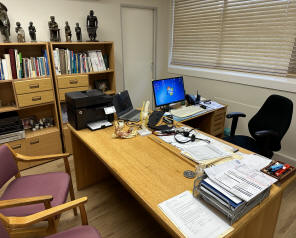 Making
an appointment
Making
an appointment with your Rheumatologist
 Making
an appointment Making
an appointment with your Rheumatologist |
|
Ideally a patient should be referred by their family practitioner / general practitioner.
However, it is my belief that the gatekeeper system, where referral is
impossible, unless the family doctor does so, is severely flawed.
Much research has taken place in the recent past and in general, many general practitioners do not know what is available in the therapy of arthritis. Therefore, I encourage patients to ask for referral to a rheumatologist, who can recognize the needs of the arthritis sufferer better, and treat the patient with the primary care practitioner, as a team. Even second rheumatologist opinions, should be encouraged, if the patient requests one. Practitioners need to be humble, that they do not know everything, and patients rights are critical.
The rheumatologist, is skilled in all diseases
of bone and joint. The rheumatologist also deals with systemic disease, and frequently, there are illnesses which are obscure, and for which diagnosis is elusive. Often such diseases are rheumatic in origin, and referral for these are not uncommon. It is difficult to assess urgency.Most receptionist's learn rapidly what is important or urgent, The receptionist will try and book you as soon as possible, but sometimes the waiting lists may be long and unacceptable to you. In this case try ask your doctor to telephone the rheumatologist to expedite the referral. Urgency includes SEVERE pain. SEVERE swelling, onset of NEUROLOGICAL WEAKNESS, RAPID deterioration amongst many other indications. You should have certain information available when speaking to the receptionist.
Medical aid / health care plan,
details. Obtain clear guidelines of COSTS.
Do not be shy to discuss costs as
embarrassment can be avoided later.
If you cannot afford the
consultation, enquire about possible discounts. These are almost always available in your area
Make an appointment with Dr Goltieb
|